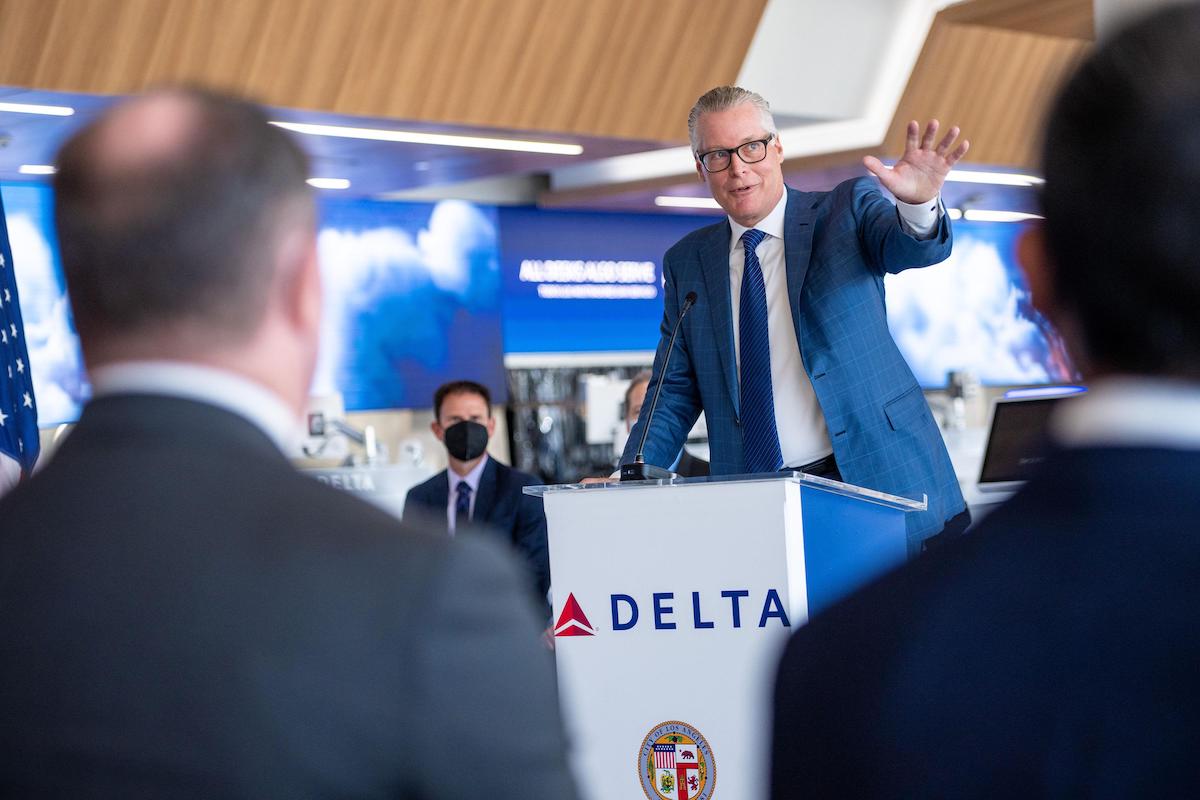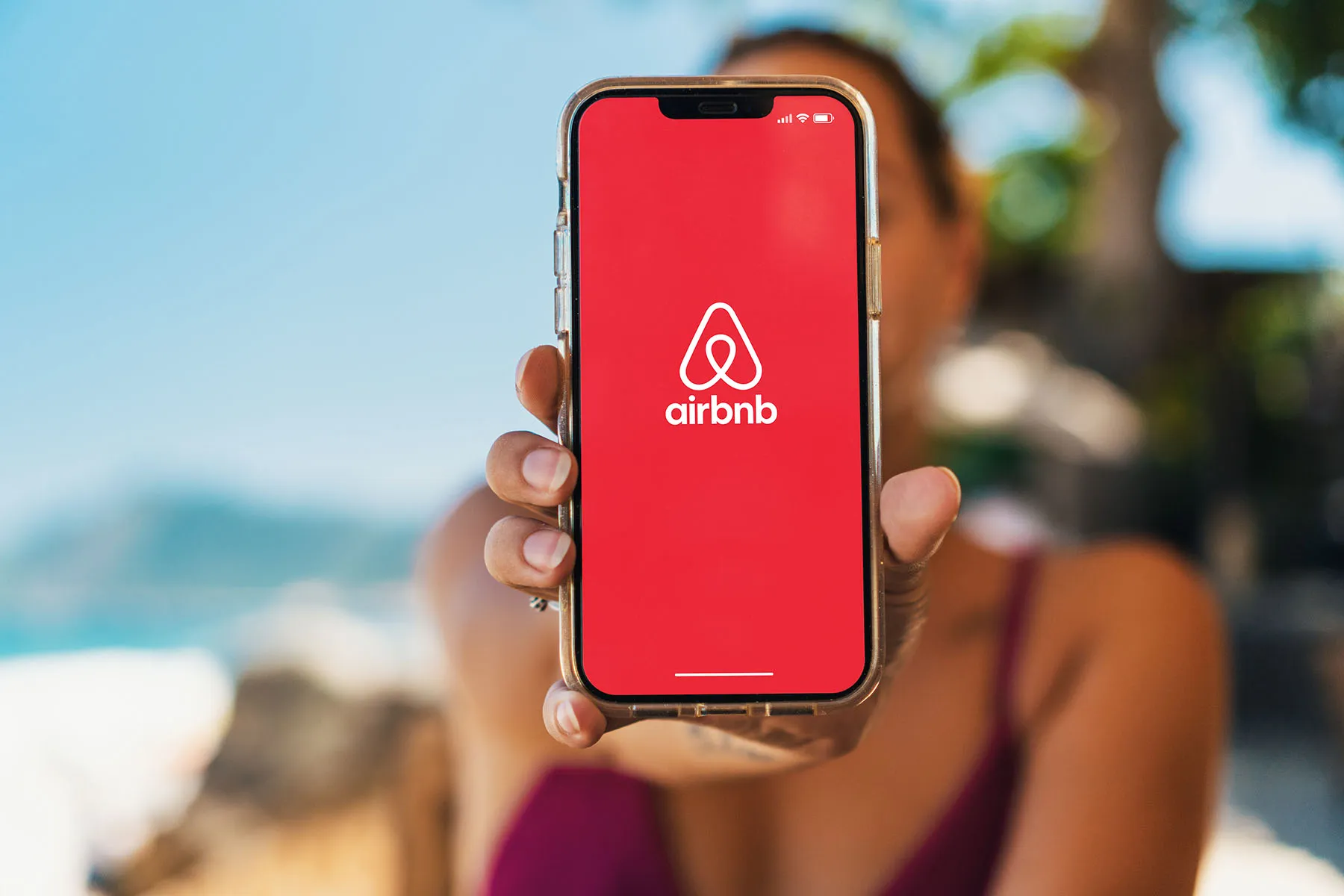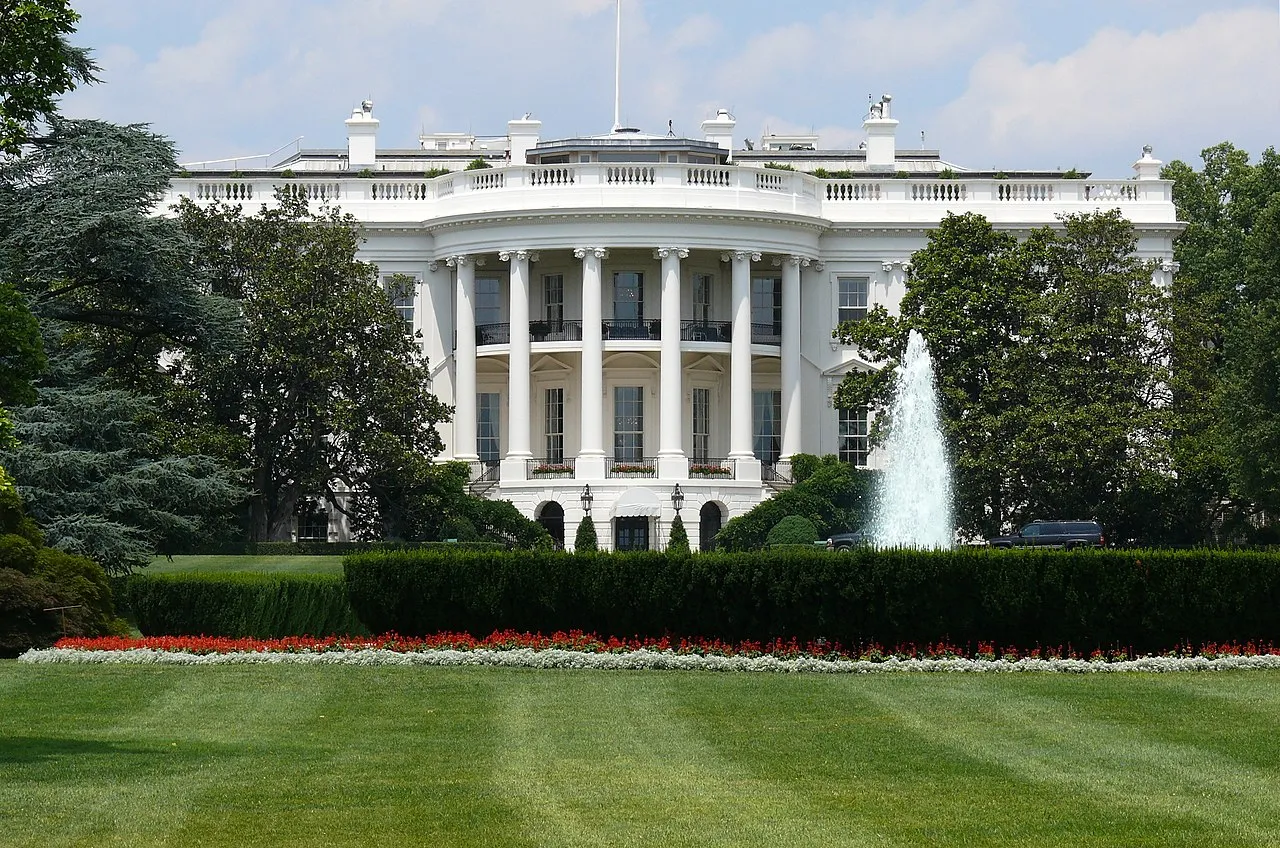Delta Bets Premium Travel Trend Is Here to Stay

Skift Take
Delta Air Lines doesn't quite think the pandemic is behind it, but it increasingly thinks the traveling public will treat Covid-19 as a recurring seasonal disease. The airline believes this trend is reflected in how consumers are spending money now, shifting spending from retail to travel and experiences.
"Consumers have not been traveling over the past two years, so they're prioritizing that spend now," Delta CEO Ed Bastian told investors during the company's first-quarter earnings call on April 13. "They are looking for experiences."
Bastian pointed to credit card data from both Delta's co-branded credit card with American Express and from increased spending on hotels and rental cars. During the depths of the pandemic, consumers redeployed cash they ordinarily would have spent on travel to home-improvement and other retail purchases. "You're seeing a pretty significant shift coming out of goods and retail into experiences and services," he said. "And that's not just the fact that people haven't traveled, they've also saved money as they've accumulated some meaningful cash and discretionary income for what they have been doing over the last couple of years."
Consumers in the U.S. are sitting on $2.5 trillion more in savings than they had before the pandemic, due largely to decreased spending on travel, restaurants, and other services curtailed by quarantines and lockdowns, data from the Federal Reserve Bank show. Although the household savings rate has declined from its pandemic-era high of more than 30 percent to pre-pandemic levels of roughly 7 percent, many higher-income households in the U.S. have significantly more to spend than they did before March 2020. This is despite the higher costs of goods and services from the highest rate of inflation in 40 years.
Leading from the Front of the Aircraft
And when they spend money on travel, consumers are more likely to spend it on premium seats, Bastian said. Delta has bet heavily on the front of the aircraft, investing in new cabins on much of its fleet of aircraft, including a new premium-economy cabin. The airline is positioning itself as an upscale brand, and is well placed to capitalize on the trend, he said.
"Over the next few years, we expect premium seat growth to continue to outpace [economy], and we're confident in the consumer shift towards higher-quality products is here to stay," president Glen Hauenstein said. "To date, premium recovery has been led by consumer, and we see further upside as more and more business travelers return to the skies."
Delta reported its March domestic premium revenue was 100 percent of 2019 levels. Premium travel to Latin America and Europe also has recovered, with no measurable decline in demand due to the Ukraine war, and Delta sees significant growth possibilities in this segment as corporate travelers return.
In March, domestic corporate travel was 70 percent of March 2019, and transatlantic business travel was roughly half. The federal pre-departure testing requirement for passengers returning to the U.S. is depressing demand for transatlantic travel, but Bastian said Delta is "encouraged" by signs that Washington may lift the requirement soon. He did not outline a timeline for when the requirement may be dropped.
Business travel also is expected to increase as more companies reopen their offices. In 2020 and through last year, small- and medium-sized businesses led the business travel recovery while large companies largely grounded their staff. This is changing, Bastian said, as a survey of Delta's corporate clients revealed that 90 percent plan to travel more in the second quarter. But travel increasingly is skewing toward meetings and events – group travel — than it was before the pandemic, he noted.
Delta expects strong demand across its network this summer with one exception: Asia. Although demand has spiked in response to South Korea and Australia easing travel restrictions, travel to Japan and China remains difficult. "We expect that heavily restricted regions, such as China and Japan, will continue to put pressure on overall Pacific unit revenues until borders fully reopen," Hauenstein said. The company expects most restrictions to ease in the third and fourth quarters of this year.
A Hiring Spree
By this summer, Delta will operate 84 percent of its 2019 capacity — or number of seats its flies — and is on a hiring spree in order to staff its operations. The carrier has hired 15,000 people since January of last year, with 4,000 joining the company since the start of this year. These employees are replacing the 18,000 Delta employees who took voluntary separation packages when the carrier downsized in response to the pandemic.
Where Delta most needs employees is on the ground: Staff at airports, reservations centers, and maintenance personnel. It competes directly with retail and other industries for these employees. The company has not struggled to hire pilots and flight attendants, although Bastian admitted training these employees will take time. "Pilots have a training pipeline and it will take some time before pilots are fully in category and where we want them positioned; it'll probably take another year or two," he said. "Flight attendants, [and] likewise, we're hiring flight attendants and there's a queue as to how much many people we can put through the training pipeline."
Delta is raising all employees' pay by 4 percent in May. As of April 1, the company dropped its $200 insurance surcharge for unvaccinated employees, as Delta moves toward treating Covid-19 as a recurring seasonal disease, Bastian said.
And Now, the Numbers
The first quarter was split into two halves: The first, with demand dampened by the Omicron variant; and the second, a dam break of pent-up demand for travel. After the February Presidents Day holiday in the U.S., demand rose sharply, Bastian said. The carrier reported an adjusted loss of $793 million for the quarter, but was profitable in March and generated an operating margin of almost 10 percent.
The Ukraine war has caused oil prices to rise, but Delta so far has not faced any pushback from passing on its increased costs to consumers. Fuel costs almost 30 percent more than it did in the fourth quarter of last year. But these costs are partially offset by the jet fuel Delta takes from its refinery in Pennsylvania. The company realizes a benefit of 20 cents per gallon of jet fuel from its refinery, especially for its New York flights.
Delta reported first-quarter revenues of $8.2 billion, 21 percent lower than the same period in 2019. Cargo revenue of $289 million was 51 percent higher than in 2019 and is expected to rise in the second quarter as companies scramble to restock after lockdowns in China disrupted the supply chain. Delta expects revenues to recover to 93-97 percent of 2019 in the third quarter, and the company is forecasting an operating margin of 12-14 percent.
"We are thrilled with the performance of our team. We have been waiting two years to see this," Bastian said. "We are ready to go. Customers are ready to go. We are looking forward to a strong summer season.”




